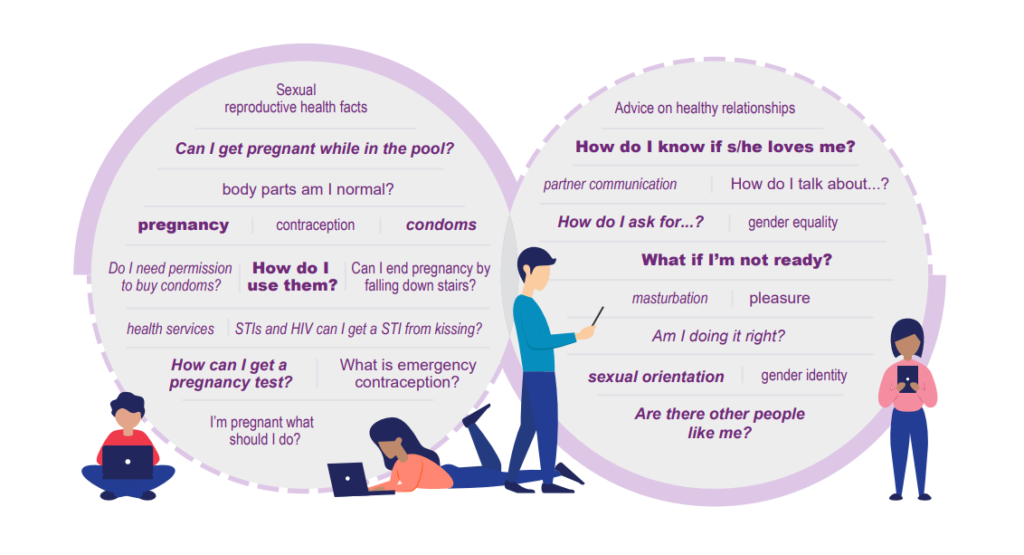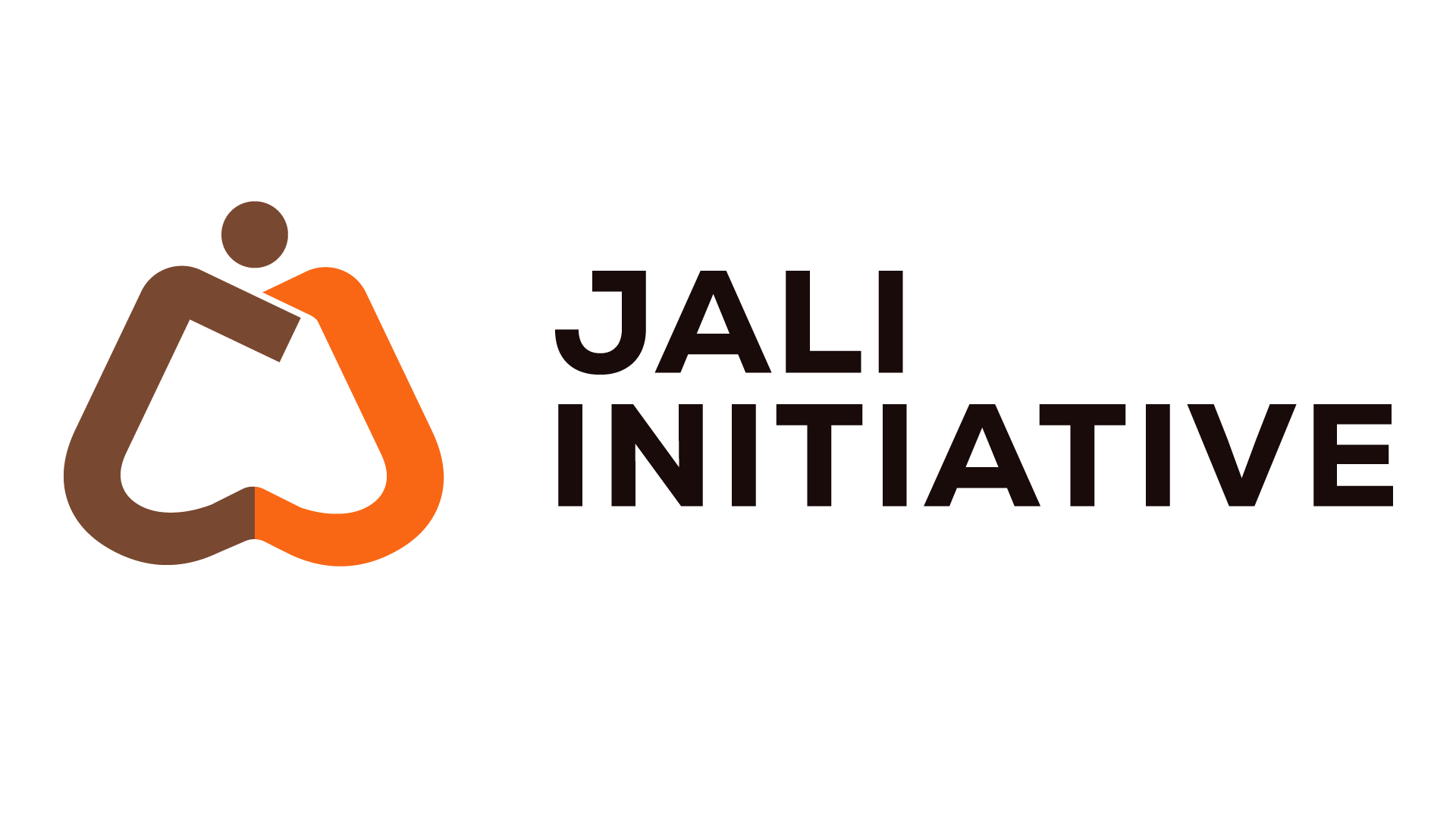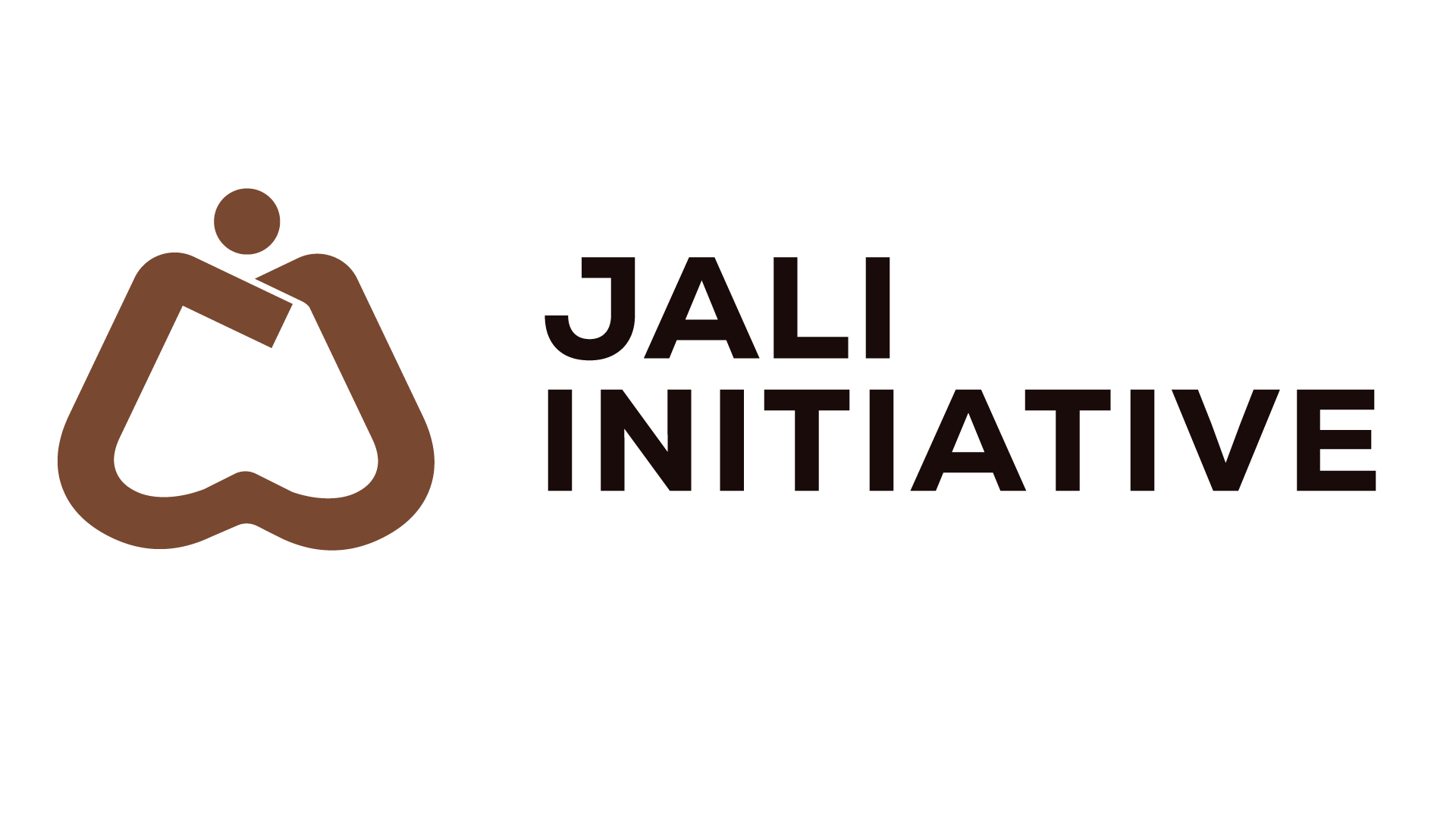DIGITAL AGE DILEMMAS: NAVIGATING ONLINE INFORMATION ON SEXUAL HEALTH
With growth in technology in an era of digitization, we see a significant impact on adolescents’ sexual health. While digitization is paving ways for improved knowledge on sexual reproductive health and attendant rights, on the other hand, it steers up a dilemma on how much content adolescents should be exposed to. It is important to acknowledge the great contribution and positive impact that online knowledge has on young people, which includes:
a) access to information and services
b) awareness creation on their important rights
c) emphasis on breaking the silence on abusive and violent behaviours that could jeopardize their lives and health
d) the possibility to report the occurrence of such scenarios.
Such vivid examples depict how accurate usage of online content could be helpful, however, where there is no close follow up on how much and what content young people consume online, it could result in negative impacts such as most prominently:
a) early exposure to pornographic content,
b) sex trafficking and other inappropriate behaviours.
All this could also contribute to early sexual practices that could result in early pregnancies, and risks of being infected with HIV/AIDS and other .
Globally, children are gaining increased access to mobile devices and going online at younger ages. It has been estimated that, globally, a third of internet users are children. It is therefore crucial for adults (teachers, health care workers), guardians and parents to provide adolescents with sufficient and efficient knowledge on sexual reproductive health to prevent them from learning things on their own in discrete, with no guidance and zero transparency on questioning matters that concern them. Adolescents require close relationships with people who they can initiate dialogue freely on various issues that concern their sexual health.
The surge in digitization has unfortunately led to an increase in cases where young people are unknowingly coerced into sex work. They are often deceived by false online job offers promising educational support or better employment prospects. Due to their genuine and desperate need for work, adolescents may fall prey to these schemes, finding themselves trapped in exploitative situations. This concerning trend highlights the crucial importance of implementing effective measures to safeguard the sexual health and overall well-being of young individuals in the digital era.
What are young people looking for while online?
Research indicates that young individuals frequently turn to the internet for information regarding sexual health. According to a study, it is a regular practice for children to seek out health-related information online on a weekly basis. Moreover, a survey conducted in the USA revealed that a large majority (84%) of teenagers utilize the internet as a resource for accessing health information, with a particular emphasis on matters related to sexual activity.
A review from 2015 further supported this finding, presenting evidence that young people are more inclined to search for information on sexual health compared to other health topics.
Although peers remain a significant source of information, both accurate and misleading, it was suggested that the digital realm has become the predominant source of sexual health information for youth.
The internet offers a convenient, customizable, confidential, and anonymous platform for obtaining information, with the added potential for entertainment value.

A case study of Tanzania
Conclusion
In many societies where discussing sex remains a taboo, and an emphasis on ‘abstinence and the negative consequences of sex’ remains, adolescents continue to be discouraged to openly speak about sex (or question matters concerning their sexual health rights). Therefore, digital technology provides another entry-point for sexual and sexuality education also known as Digital Sexuality Education (DSE). As highlighted by UNICEF, the internet and digital media facilitate private, personalized and easily accessible answers to critical questions about sexuality and relationships that may not be otherwise forthcoming. Various media outlets such as websites, messaging apps and social media platforms also provide sex educators an avenue to reach young people directly anytime and anywhere.
However, following the high rise of these digital platforms in Tanzania, a key question arises as to the extent and reach of online educators, and the impact needed to make a significant difference to the sexual and reproductive health of young people. An important aspect of this trend emerges from a report by United Nations in 2021, indicating the inequalities between girls and boys associated with growth in digital technologies and innovation. At present, girls have limited access to digital tools and internet compared to boys. So, this alone shows how there would still be inequalities in accessing education online regarding sexual reproductive health. This, therefore, remains a challenge to adolescents who cannot access sexual reproductive health education online, particularly while sex talks remain a taboo, and efficient and sufficient information on this is not circulated.
Call to Action
As JALI, we continue to promote positive change in our society, and we strongly believe that it is through collective action that we can move mountains. The following could guide individuals in dilemma with digitization and sexual reproductive health:
- Advocate for Comprehensive Sex Education: Support initiatives that promote age-appropriate, comprehensive sex education in schools and communities. Knowledge is power, and by ensuring young people have access to accurate information, we empower them to make informed decisions.
- Foster Open Conversations: Break the silence surrounding sex talk. Encourage open, honest discussions about sexual health within families, schools, and communities. By creating safe spaces for dialogue, we can address misconceptions and provide much-needed support.
- Promote Digital Literacy: Equip young individuals with the skills to navigate the digital world responsibly. Encourage critical thinking and teach them how to discern credible sources of information from misleading ones.
- Support Access to Technology: Advocate for initiatives that bridge the digital divide, ensuring that all adolescents have equal access to digital tools and resources. This inclusivity is essential in leveling the playing field.
- Raise Awareness about Online Safety: Educate young people about the potential risks they may encounter online, such as sex trafficking and explicit content. Empower them to protect themselves and seek help when needed.
- Engage with Advocacy Groups: Join or support organizations working towards improving adolescent sexual health in the digital age. Your voice and actions can contribute to meaningful change.


